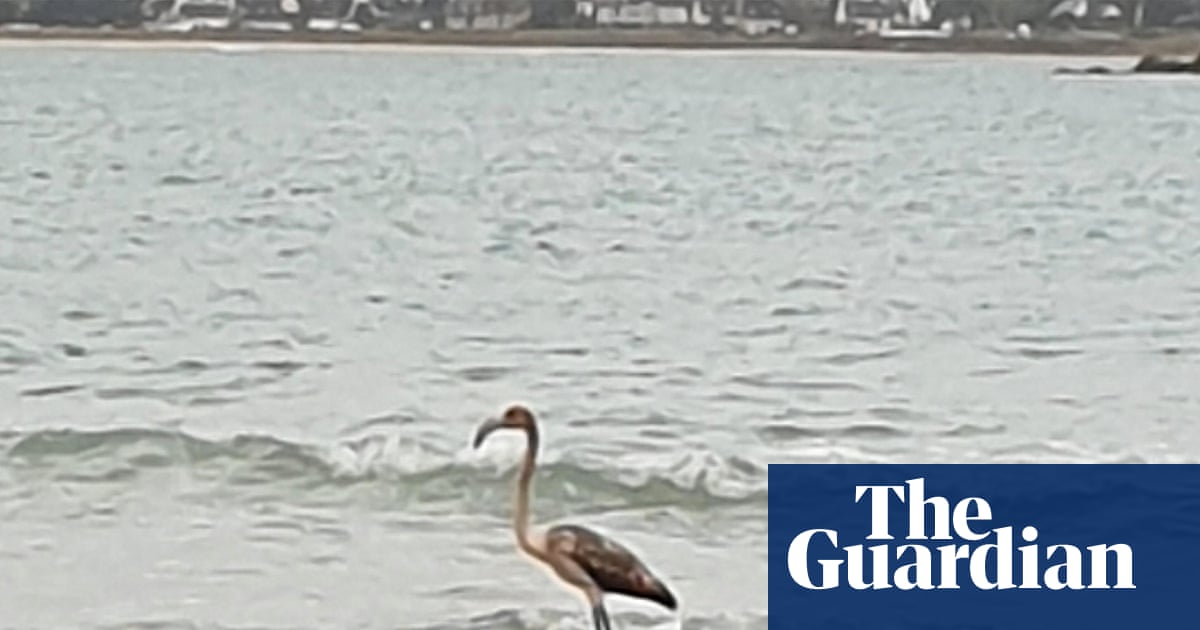Regarde, un flamant rose! The zookeepers of Paradise Park in Hayle, Cornwall may never have expected to learn the French word for flamingo but the unlikely journey of Frankie the escapee has made this a linguistic necessity.
The four-month-old female flamingo took flight on 2 November, despite having her feathers clipped, from the walled garden of the Cornish zoo.
Sightings were reported later near Porthtowan, about 13 miles away.
But more than a week since she went missing, the park is looking into credible sightings of Frankie on the French coast of Brittany, more than 100 miles away across the Channel.
Paradise Park said in a statement: “We are letting you know that there have been sightings of a flamingo on the coast of Brittany in France.
“There is a population of greater flamingos in southern France, and the young birds look very similar to Frankie, but we believe we can see the feathers on the right wing have been clipped. We are awaiting more photos to help confirm if it is Frankie.
“Flamingos are capable of flying that distance, but we still feel amazed to see she has travelled so far also relieved to see her looking so fit. She has found a wonderful, protected estuary system and should be able to feed.”
Paradise Park said it was keeping an open mind in case the flamingo seen in Brittany was not Frankie. Photograph: Paradise Park
The park shared a couple of images of the flamingo seen in Brittany but said it was keeping an “open mind just in case it is not her”.
Flamingos are not native to Brittany so a sighting of a flamingo is highly unusual; their only native nesting site in France is in the Camargue on the south coast, near Arles.
The Carmargue flamingo population tends to leave the colony to go either south-west to winter in Spain, or south-east to winter in Tunisia and Turkey.
They are generally non-migratory birds, though due to changes in the climate – such as drought – colonies are not necessarily permanent.
Frankie hatched on 1 July 2025, the first flamingo chick to hatch on the nest and be reared by its parents at Paradise Park.
The Caribbean flamingo is known for its long legs and neck and distinctive pink plumage. Their legs let them wade in deep water and they filter their food of algae and shrimp out of the mud, which is what gives them their pink colouring. They can live until the age of 40.
Anyone who believes they have spotted Frankie and has photos or video can contact the park on 01736 753365 or info@paradisepark.org.uk.
